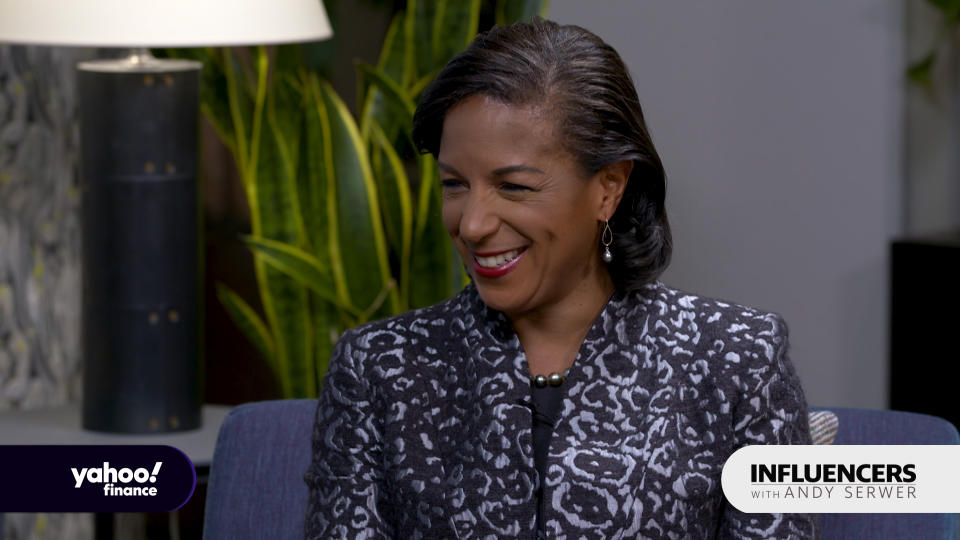Susan Rice weighs in on 'the danger' surrounding big tech
U.S.-based tech giants like Google (GOOG, GOOGL) and Facebook (FB) have come under intense scrutiny from American lawmakers in recent months, but their products have long elicited ire and stiff regulation abroad, where some officials have punished the companies for abusing user data and others have blamed them for stoking lethal violence.
The international reputation of large American tech firms can impact how the global community perceives the U.S., says a former top national security official under Barack Obama.
“They're mediating the flow of much of the world's information, and/or failing to mediate the flow of much of the world's information, depending on your perspective,” says Susan Rice, the former National Security Advisor, who recently released a memoir called “Tough Love.”
“The danger of that is that their success and/or failures become perceived as American successes or failures,” she adds.
The comments, made last Tuesday, came in response to a question from Yahoo Finance Editor-in-Chief Andy Serwer about Google, Facebook, and Twitter (TWTR).
Two weeks ago, in a sign of growing appetite to regulate the tech giants, the European Union’s top court ruled that member countries can compel social media companies to remove false information worldwide. The decision follows a summer in which Britain and France moved forward with plans to impose taxes on U.S. tech companies.
Facebook alone has 2.4 billion monthly active users worldwide.
“We have to be mindful, both as policymakers and as corporate leaders, that it's very difficult to disentangle the perception of our biggest economic players that impact the lives of people around the world and our country itself,” Rice says.
Rice served as the National Security Advisor under president Barack Obama for three and a half years, giving intelligence briefings to the president each morning; and before that, she spent Obama’s first term as the U.S. Ambassador to the United Nations. Earlier in her career, Rice served as U.S. Assistant Secretary of State for African Affairs in Bill Clinton’s administration, and spent several years as a fellow at the Brookings Institution.
She currently sits on the boards of Netflix and the John F. Kennedy Center for the Performing Arts.
She made the comments during a conversation that aired in an episode of Yahoo Finance’s “Influencers with Andy Serwer,” a weekly interview series with leaders in business, politics, and entertainment.

‘I’m not saying it’s justified’
Rice pointed to Myanmar, where intensifying ethnic violence over the past decade has in part been attributed to the spread of misinformation on Facebook.
“If Facebook, for example, is blamed in Myanmar for allowing anti-Rohingya propaganda that incites violence or genocide, that could redound to the detriment of the United States and how we're perceived internationally, because Facebook is such a major player,” she says.
Last year, U.N. Human Rights experts examining violence perpetrated against Rohingya Muslims in Myanmar said that social media played a “determining role” in the conflict. Marzuki Darusman, chairman of the U.N. Independent International Fact-Finding Mission on Myanmar, specified: “As far as the Myanmar situation is concerned, social media is Facebook, and Facebook is social media.”
A Facebook-commissioned report, released last November, acknowledged that the company had failed to prevent the platform from “being used to foment division and incite offline violence” in Myanmar.
Spillover criticism from the companies onto the U.S. can have a negative impact even though it may not be warranted, Rice said.
“I'm not saying it's justified,” she says. “I'm not saying it's fair.”
Max Zahn is a reporter for Yahoo Finance. Find him on twitter @MaxZahn_.
Read more:

 Yahoo Finance
Yahoo Finance 